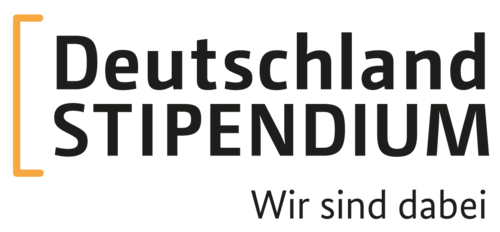Egyptian-German Research Matchmaking Day 2025: Strengthening Academic Bridges Between Egypt and Germany
12.10.2025
The Egyptian-German Research Matchmaking Day 2025 fostered new academic partnerships and deepened collaboration between institutions in Egypt and Germany.

Organized under the DAAD project COSIMENA (Clusters of Scientific Innovation in the Middle East and North Africa), the event was held in cooperation with the Cairo Liaison Offices of Freie Universität Berlin and the Philipps-Universität Marburg as well as the international office of Technische Universität Berlin.
The event opened with welcome addresses from Fatma Soliman (DAAD Cairo), Antonia Schulz (German Embassy), and Prof. Dr. Gina El-Feky (ASRT), all highlighting the importance of academic collaboration in addressing global challenges. This was followed by an opening outlook by Irene El-Khorazaty, Head of the Cairo Liaison Office of Philipps-Universität Marburg, who emphasized the event’s goal: to catalyze new partnerships and deepen existing ones between German and Egyptian academic communities.
A keynote lecture by Prof. Dr. Mohamed Salheen, Acting Vice President for Academic Affairs at Ain Shams University, explored the topic “Fostering Sustainable Academic Cooperation: Insights from Successful Egyptian-German Research Partnerships”. Drawing from his own experience, Prof. Salheen illustrated the long-term value of mutual commitment and interdisciplinary cooperation.
A highlight of the day was the panel discussion “Partnerships in Transition: Exploring Emerging Fields and Evolving Cooperation Models”, moderated by Christina Stahlbock (TU Berlin). Panelists included Dr. Yasmine Aguib (Magdy Yacoub Foundation & Imperial College London), Dr. Annina Lottermann (German Research Foundation - DFG), Prof. Dr. Mohamed Salheen and Dr. Salma Yousry (Ministry of Higher Education). Together, they explored how research partnerships must evolve in response to shifting priorities, emphasizing science diplomacy, institutional trust and real-world impact as key drivers of sustainable collaboration.
In a subsequent session, funding bodies presented current and upcoming opportunities for research cooperation. Representatives from the German Research Foundation (DFG), European Union Delegation in Egypt, Academy of Scientific Research and Technology (ASRT), and the DAAD outlined programs that support bilateral projects. The session was moderated by Hoda El Mahgoub, Head of the Liaison Office of Freie Universität Berlin in Cairo.
The afternoon featured three thematic expert roundtables, which offered deeper engagement in specific fields of shared interest:
- Genetic Architecture of Complex Diseases, co-moderated by Prof. Dr. Johannes Schumacher (Marburg) and Dr. Doaa Tawfik (Cairo University)
- ACROSS – Productive Landscapes for Urban Futures, led by Prof. Dr. Lisa Babette Diedrich (TU Berlin) and Prof. Dr. Mohamed Salheen (Ain Shams)
- Global Change Impacts on Water Resources, moderated by Prof. Dr. Paul Wagner(Freie Universität Berlin) and Prof. Dr. Yasser El Shayeb
These roundtables allowed researchers to exchange ideas, identify common research goals and explore potential collaborations, with several participants initiating plans for future joint proposals and follow-up meetings.
As the day concluded, participants expressed strong interest in maintaining the momentum generated by the event. Ideas for upcoming virtual workshops, proposal writing sessions and expanded involvement of early-career researchers were enthusiastically discussed. The event also reaffirmed the critical role played by the DAAD and the German universities' liaison offices in Cairo in connecting institutions and researchers across borders.
With its blend of academic depth, strategic networking and practical insights, the Egyptian-German Research Matchmaking Day 2025 succeeded in not only creating new academic links but also reinforcing the long-standing partnership between Egypt and Germany. The day ended with optimism, renewed commitment and a shared belief in the power of research to tackle the challenges of tomorrow.
Check out the photo album of the Egyptian-German Research Matchmaking – Second Edition 2025 here

